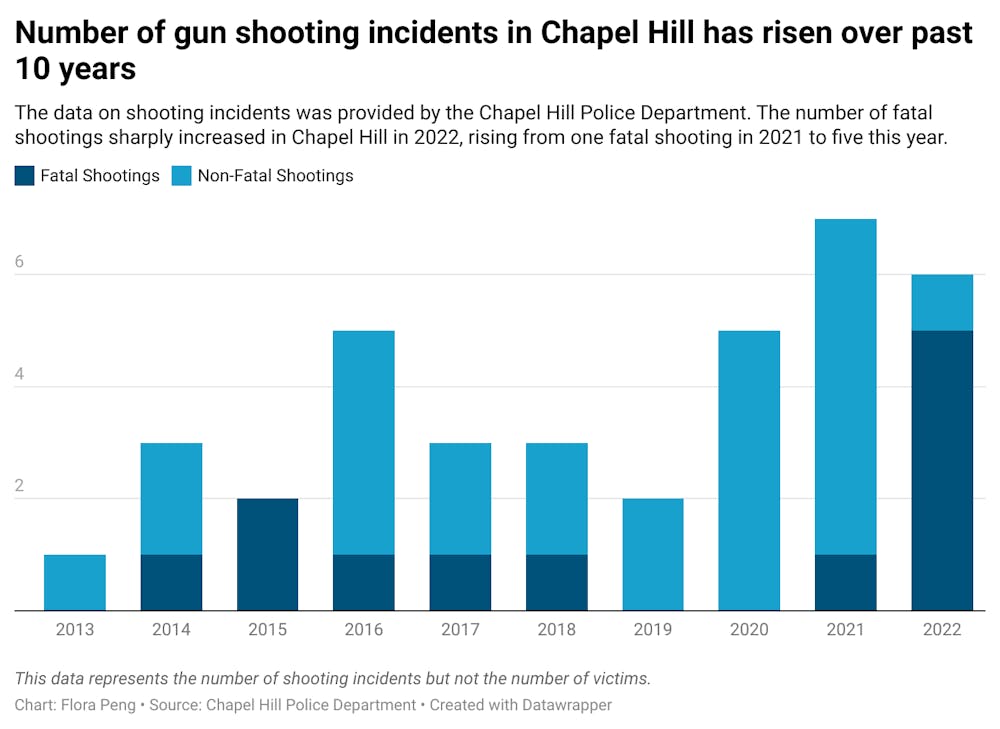“We don’t wanna go the 15 feet to the garbage can,” F said.
F said the neighborhood has completely shut down, and that he doesn't recognize many of his neighbors because nobody goes outside.
Overall, though, he feels that what has happened on Pritchard Avenue Extension is not typical of the town.
“Anytime I’m outside of this apartment complex, I feel safe, not here though,” F said.
Though news of the shootings has shaken some, other Chapel Hill residents still consider the Town a safe place.
UNC student Abhay Zala lives on Creel Street, just a few doors down from where a resident was killed in their home on June 10. Zala said the news made him nervous initially.
"Otherwise I kind of put it off because, generally, I trust the area to be mostly safe,” he said.
Since January, the town has seen more gun deaths than in the past four years combined. But, according to data provided by the CHPD, overall violent crime rates have declined sharply since 2020.
On a state level, reports from the North Carolina State Bureau of Investigation show that violent crime rose from 2018 to 2020, with a slight drop in 2021.
Property crime, on the other hand, has risen over the past year. Property crime includes burglary, larceny and motor vehicle theft.
To get the day's news and headlines in your inbox each morning, sign up for our email newsletters.
CHPD Chief Chris Blue said violent crime usually goes up in the summer, while property crime goes up in the winter.
“In the hotter months, we tend to see more crimes against the person,” Blue said.
These crimes against the person include serious crimes like robbery, assault and homicide. The winter season, Blue said, brings more property crime, as both students and residents leave town for the holidays, creating opportunities for break-ins and burglaries.
Blue said he thinks there are two prominent theories explaining the increase in homicides, which he said has affected many communities across the nation.
First, he said the economic conditions of the COVID-19 pandemic have driven many to desperation, especially those who were struggling before the pandemic. Second, Blue said people may not trust law enforcement and refuse to turn to the police in dangerous situations.
“Time will tell whether we’re able to, as a society, address both of those concerns,” Blue said. “But those seem like reasonable theories to me.”
While most cases of homicide are difficult to anticipate, Blue said, the police department is working to prevent more predictable violent crimes by focusing on everyday presence and outreach.
Long-time Chapel Hill resident Frederic Williams said he has never felt unsafe in town.
The most noticeable change over the years, he said, has been students replacing older homeowners, not violent crime.
“I would rather be in Chapel Hill than be in Durham,” he said.
Gun violence happens everywhere, Williams added, and compared to other communities, he thinks of his town as relatively peaceful.
@DTHCityState | city@dailytarheel.com
CORRECTION: A previous version of this article incorrectly stated the number of homicides in Chapel Hill this year. There have been five homicides in 2022, not six. The Daily Tar Heel apologizes for this error.




